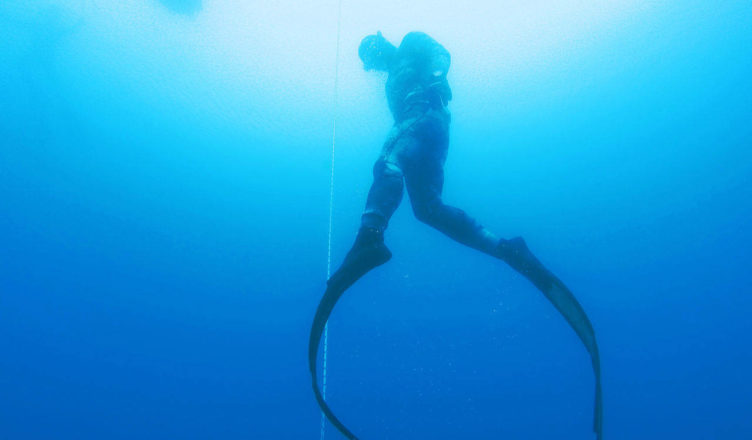Diving into cold, darkening water, into the unknown depths of the sea is much more challenging than you may have imagined.
The extreme conditions while diving deeper and deeper, whether using fins or weights to go faster literally change your body and its performance.
This sport entails organ-crushing pressure, zero breathable oxygen and a high risk of losing consciousness – making it a deadly experience.
Kirk Krack answered some of the questions of what happens to your body while you go down into bone chilling cold water.
First of all, Krack states a peculiar form of training called Mammalian Dive Reflex (MDR) a physiological phenomenon that runs through our blood.
This kind of training tries to get in touch with your inner “seal”, allowing your body to function properly without the normal levels of oxygen.
These are some of the transformations a free diver suffers throughout a diving session:
Cardiovascular System
First thing is bradycardia, which means the reduction of the heart beats, some great divers can reduce that to 50 percent, with approximately 14 beats per minute!
(For the record, while you’re reading this, your heart is beating 60 to 100 times per minute, so just imagine!)
The second is peripheral vasoconstriction. Normally, you will have a normal bloodflow reaching your entire body. But when you start submerging under water, the brain starts to figure out that the fingers, legs and extremities of the body don’t need as much oxygen as the heart (after all, this is the organ that’s keeping you alive). So in a more colloquial way, the brain tells the body “Chill bro, I got this”.
If the diver keeps on going deeper, their body will also suffer a blood shift. Basically, the blood and water go through the cellular walls to offset the compression caused by the water’s pressure.
Respiratory System
At 300 feet, the lungs are compressed to the size of a softball. Pressure is not necessarily a enemy down there, but rather becomes an ally. When you have so much air in your lungs it’s harder to go down, since your body wants to float, but after 20 feet the air in the lungs enters in a range of negative buoyancy and helps the diver to go faster into the deep.
Brain
As I told you earlier, this fellow has all the oxygen for himself. But sometimes it’s not enough… so a loss of motor control can occur. This is why you’ll see that in free diving competitions there are many judges inside the water with proper equipment to watch out for any sign of motor-control loss.
Needless to say, when entering the water your brain knows that this is a bad idea.
So, free divers have to overcome this fear factor.
They also have to separate themselves from the need for breathing, as well as the urge to fight the pressure contraction, when the diaphragm tells the brain YOU ARE NOT BREATHING.
These are some of the changes the body of a free diver will suffer in a competition or dive session. The current world record in men’s free diving is 253 meters (831 feet), held by Herbert Nitsch.
Would you dare to free dive and venture down into the depths of the sea?
Keep rolling till you find something you love…

